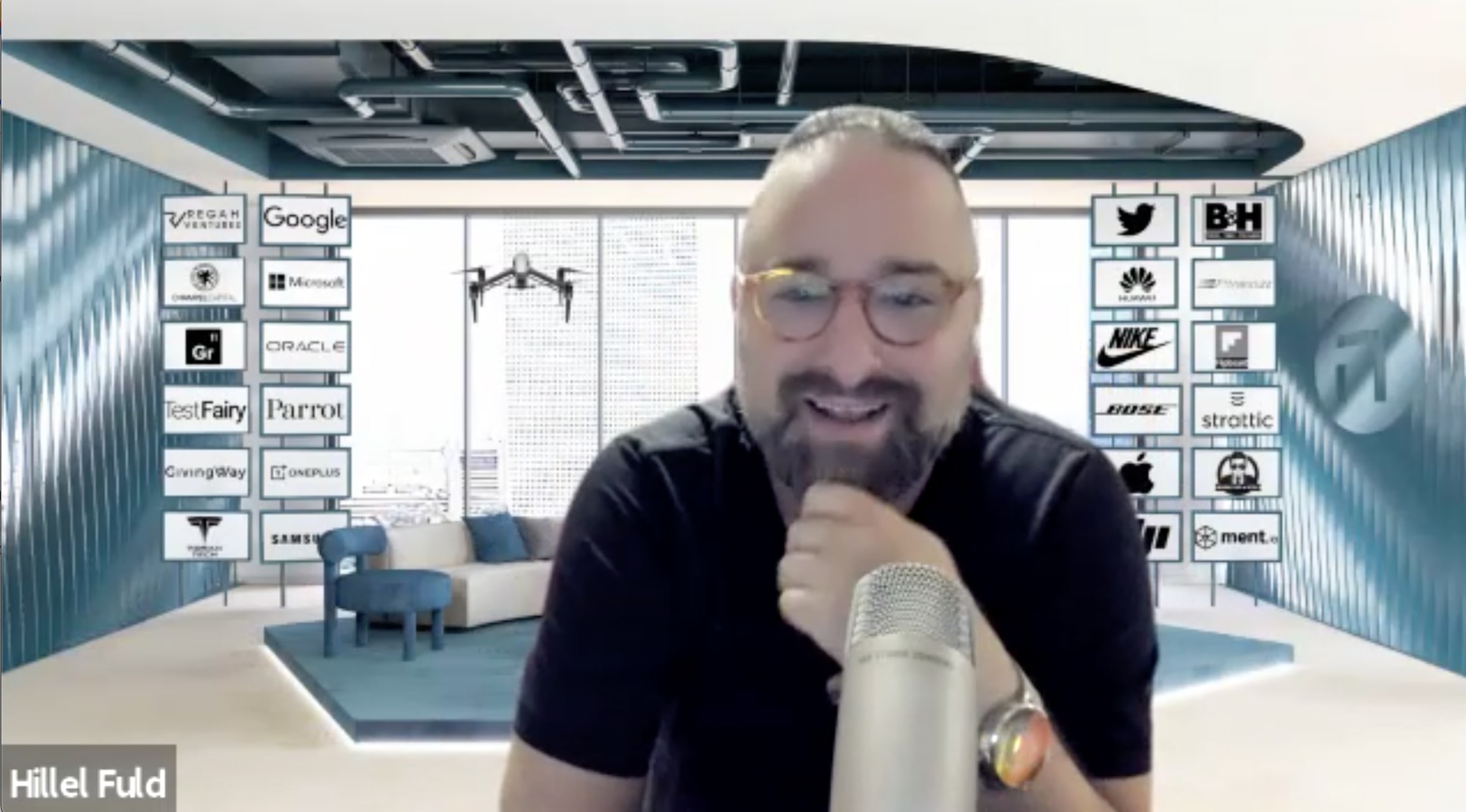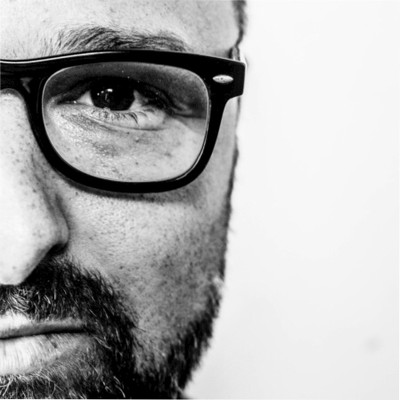
Hillel Fuld has been named the 7th top tech blogger worldwide, he is named Israel’s top marketer, and on Forbes, was dubbed “The Man Transforming Startup Nation to Scale up Nation.” Hillel is a global speaker, tech blogger, startup marketer, and leading online influencer.
I’d like to start by asking you about how you got into blogging?
I was always very passionate about technology, but I didn’t really know how I could penetrate the technology sector, because I’m not an engineer. I was at my first job, writing user guides for a large tech company, bored out of my mind, and I said to myself, I need to do something else. I thought, well, I love technology, I have interesting thoughts and input concerning technology, I love writing, and I just opened the internet and started to write. I didn’t call it a blog, because that wasn’t even a word back then. I wrote it for myself, I didn’t do any SEO, I didn’t try to get readers, I didn’t monetize it in any way, I just literally got to work on it. I’d wake up every day, get myself a cup of coffee and write a post. Pretty quickly it started to scale because it was very early, there really weren’t many blogs out there. I started to get pings from entrepreneurs who had read my articles, who wanted to meet me, and that basically gave birth to my entire career.
One of the people that you interviewed was Steve Wozniak, can you tell us a little bit about that experience?
Actually, it’s a pretty funny story. A few years ago I decided that I wanted to start interviewing people who inspired me. Steve Wozniak was at the top of my list. I just wrote him a message on Facebook. I said, “Steve, you’ve deeply inspired me, I’d love to interview you”... and he responded right away, he said no [laughs]. So I waited a year, and I wrote to him again, asking again if I could interview him, and he said “no, Steve Jobs just died” there was tons of press, and he didn’t want to do interviews. Then I waited another year, and I wrote to him again, and I said, “what would it take to convince you?”. And he said, “ok, send me questions”. So I sent him the questions, and he sent me back answers. I copied and pasted and hit publish. It went pretty viral, and then six months later, I get a phone call, and Steve Wozniak says, “I’m in Israel, let’s get breakfast”! And that was the craziest morning of my life.
Wow, that must have been amazing! Tell me, you currently work as an advisor for many startups, how do you see your success as a blogger contributing to making you a better company advisor?
That is a great question. Well, the foundation of good marketing, in my opinion, is great content. If you look at every leading brand, they are all producing great content. The example that I love to give is Redbull. Redbull is basically the leading energy drink in the world, but if you look at their website, there is not even a mention that they are a beverage. They just produce content. So again, at the foundation of a building successful brand and marketing is content. My blogging led entrepreneurs to
reach out to me, and I told them, in order to build this brand, you need to start producing content yourself, and that’s how it all started.
Do you see yourself as an advisor for startups in general, not only as far as content is concerned, but on a broader level?
Well, I specifically advise startups on marketing. That covers, PR, social media, content, business development, fundraising, depending on their needs, but its all things growth, not only content.
You give your advice for free, what is your motivation for doing so, in this day and age, when often there is a price tag on everything?
My real motivation [he says, laughing] is being a good person. If there is a startup company that wants to meet me for lunch and ask my advice on something, it doesn’t cost me anything, and I’m happy to help. If a startup wants me to introduce them to an investor, why wouldn’t I help them? The startup benefits, the investor benefits, and all I did was write an e-mail. So yes, a lot of what I do is “free” but, many of the companies that I’ve worked with over the years, for free, understood what I can do for them and they came back to me and asked to work with me, for a salary.
I understand. What are the changes in the marketing of apps, if there have been, due to Covid19?
Well, a lot of marketing of apps takes place on the internet, so that has not changed. This being said however, there are a lot of things we had in the pre-Covid reality that we don’t have now. For example, conferences. Startups and Tech companies, would often host their own conferences, or summits, or one-day events, and that is something that is obviously much less common today. The other thing that is much less common is face to face meetings, and building relationships offline, which is extremely important, but unfortunately, due to the pandemic, it is very uncommon today.
Where would you rank the current investigation of Facebook in the Senate, dealing with their ethics, compared to other media and political storms that Facebook has faced over the years?
What a question. Well, we’ve never had a platform as influential as Facebook. There has never been a product with 2.5 Billion daily users. We saw this last week, when there was an outage, how much power Mark Zuckerberg has. So, on the one hand, it is a little scary. But on the other hand, generally speaking, and I can tell you this as a person that knows many people that work at Facebook, the company has good intentions. Whether it is hate speech that they want to remove from the platform, fake news, and things like that. They are working very
hard, but there has never been a platform in existence with this much content. Of course, certain things are going to fall between the cracks. But, generally speaking I believe Facebook has good intentions, and they are going to get heat, no matter what, they are going to be facing pressure because it is a massive platform.
Where would you rank the importance of the ethicality of a company when considering that in relation to value to investors?
Obviously, in my opinion, if you do build an ethical business, you will bring long-term return to your investors. I know that sounds very philosophical but at the end of the day, if you build a great product, that people love, and that enhances their life, I think that you end up winning. I don’t think value to investors and ethics are mutually exclusive things. You can build an ethical business and succeed.
I’d like to get into some technical questions, concerning apps. Shipbook, as you know, helps promote and maintain app quality. What parameters would you recommend that app owners look at when they need to choose whether to allocate resources for app quality or new features?
The answer to this question, to me, is a famous quote by Davinci, that Steve Jobs borrowed: “Simplicity is the ultimate sophistication”. If something just simply does what it is supposed to do, and doesn’t have a million features, at the end of the day, that is what makes great products, so I think I would always focus on enhancing and improving the product before adding new features. ● Are users becoming more or less sensitive to bugs in the last 3-5 years? I think sensitivity is probably the wrong word here. I think the right word to use here is lack of attention. We have less attention spans today, so when I try a product, if it doesn’t hook me in, in the first 20 seconds, I’m deleting it. Because there is so much noise on my feed, so many apps out there, so many platforms out there. So if something doesn’t work perfectly and there’s a little bug, people will just delete it. So, yes, it is harder to get people’s attention today.
Where do you see apps developing in the future?
Many people will say that native apps are not going to be the way of the future, but rather web apps, in other words, apps that you can access from the browser. I don’t know that I agree with that, because it’s just never going to be the same experience as a native app. But I do think that we’re going to see more solutions
about the way we interact with our devices. I know this isn’t exactly concerning apps, but technology is moving towards changing the way we interact with our devices. The fact that we still use a mouse, for example, is ridiculous. Also the fact that we walk around the streets with a big piece of glass in our face, called a cell phone, is also ridiculous. In the not so distant future, we are going to interact with our devices very differently, whether it’s glasses, or other things, and that will impact apps and other things.
Do you have a dream app that hasn’t been developed yet?
I believe that the space of mental health has yet to be disrupted. There are mental health apps out there, but I don’t believe that it has reached the level of disruption that we have in other industries. Transportation has been disrupted, communication has been disrupted, hospitality has been disrupted, insurance has been disrupted, mental health is still very primitive. So I would imagine we are going to see a lot of solutions in the mental health space in the next couple of years.
It was fascinating to meet with you and discuss these issues. Thank you very much for your time and valuable input!
Shipbook gives you the power to remotely gather, search and analyze your user logs and exceptions in the cloud, on a per-user & session basis.

